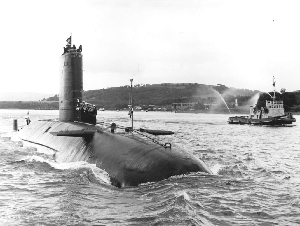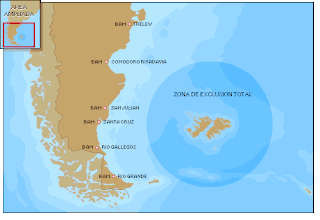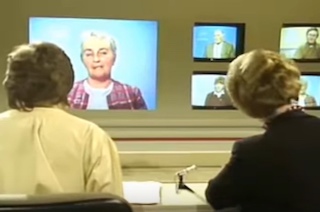Related Research Articles

The Falklands War was a ten-week undeclared war between Argentina and the United Kingdom in 1982 over two British dependent territories in the South Atlantic: the Falkland Islands and its territorial dependency, South Georgia and the South Sandwich Islands. The conflict began on 2 April 1982, when Argentina invaded and occupied the Falkland Islands, followed by the invasion of South Georgia the next day. On 5 April, the British government dispatched a naval task force to engage the Argentine Navy and Air Force before making an amphibious assault on the islands. The conflict lasted 74 days and ended with an Argentine surrender on 14 June, returning the islands to British control. In total, 649 Argentine military personnel, 255 British military personnel, and three Falkland Islanders were killed during the hostilities.

Admiral Sir John Forster "Sandy" Woodward, was a senior Royal Navy officer who commanded the Task Force of the Falklands War.

ARA General Belgrano (C-4) was an Argentine Navy light cruiser in service from 1951 until 1982. Originally commissioned by the U.S. Navy as USS Phoenix, she saw action in the Pacific theatre of World War II before being sold to Argentina. The vessel was the second to have been named after the Argentine founding father Manuel Belgrano (1770–1820). The first vessel was a 7,069-ton armoured cruiser completed in 1896.

HMS Conqueror was a British Churchill-class nuclear-powered fleet submarine which served in the Royal Navy from 1971 to 1990. She was the third submarine of her class, following the earlier Churchill and Courageous, all designed to face the Soviet threat at sea. She was built by Cammell Laird at Birkenhead.

ARA Veinticinco de Mayo (V-2) was an light aircraft carrier in the Argentine Navy from 1969 to 1997. The English translation of the name is Twenty-fifth of May, which is the date of Argentina's May Revolution in 1810.

ARA San Luis (S-32) was a Type 209 diesel-powered submarine of the Argentine Navy. Built in Germany, San Luis has a displacement of 1,285 tonnes and was commissioned in 1974. The submarine operated against the Royal Navy during the Falklands War without any noticeable success, but survived a number of anti-submarine sweeps carried out by British frigates. San Luis was struck in 1997 after an incomplete overhaul; as of 2020, its hull remained stored at Domecq Garcia Shipyard (Tandanor).

USS Collett (DD-730) was a World War II-era Allen M. Sumner-class destroyer in the service of the United States Navy.

The three Churchill class, sometimes known as the Repeat Valiant-class submarines were nuclear-powered fleet submarines which served with the Royal Navy from the 1970s until the early 1990s. The Churchill class was based on the older Valiant class, but featured many internal improvements.

Micronet 800 was an information provider (IP) on Prestel, aimed at the 1980s personal computer market. It was an online magazine that gave subscribers computer related news, reviews, general subject articles and downloadable telesoftware.

USS Borie (DD-704), an Allen M. Sumner-class destroyer, was the second ship of the United States Navy to be named for Adolph E. Borie, Secretary of the Navy under President Ulysses S. Grant.

The Royal Navy Submarine Service is one of the five fighting arms of the Royal Navy. It is sometimes known as the Silent Service, as submarines are generally required to operate undetected.

Strike Fleet is a 1988 video game developed by Lucasfilm Games and published by Electronic Arts. It was released for the Amiga, Apple II, Atari ST, Commodore 64, and MS-DOS. Strike Fleet is the unofficial sequel to the war game PHM: Pegasus.
The cultural impact of the Falklands War spanned several media in both Britain and Argentina. A number of films and television productions emerged from the conflict. The first Argentine film about the war was Los chicos de la guerra in 1984. The BBC drama Tumbledown (1988) tells the story of a British officer paralysed from a bullet wound. The computer game Harrier Attack (1983) and the naval strategy game Strike Fleet (1987) are two examples of Falklands-related games. A number of fictional works were set during the Falklands War, including in Stephen King's novella The Langoliers (1990), in which the character Nick Hopewell is a Falklands veteran. The war provided a wealth of material for non-fiction writers; in the United Kingdom (UK) an important account became Max Hastings and Simon Jenkins' The Battle for the Falklands.

USS Luiseno (ATF-156) was an Abnaki-class fleet ocean tug built for the United States Navy during World War II. Named after the Luiseño peoples, she was the only U.S. Naval vessel to bear the name.

The Total Exclusion Zone (TEZ) was an area declared by the United Kingdom on 30 April 1982 covering a circle of radius 200 nautical miles from the centre of the Falkland Islands. During the Falklands War any sea vessel or aircraft from any country entering the zone was liable to be fired upon without further warning.

Falklands '82 is a 1986 turn-based strategy video game developed and published by Personal Software Services for the ZX Spectrum and Commodore 64. The game is set during the 1982 Falklands War and revolves around the Argentine occupation and subsequent British re-capture of the Falkland Islands. The player controls the British Task Force as they must either defeat all Argentine forces on the archipelago or re-capture every settlement.

Iwo Jima is a turn-based strategy video game developed and published by Personal Software Services for the Commodore 64 and ZX Spectrum in 1986. The game is set during the Battle of Iwo Jima in the Pacific Ocean theatre of World War II and revolves around the United States Marine Corps' objective to secure the island of Iwo Jima from the Imperial Japanese Army.

An exchange on 24 May 1983 between Diana Gould, an English schoolteacher and former Women's Royal Naval Service meteorological officer, and British prime minister Margaret Thatcher was voted in 1999 as one of the most memorable moments in British television. Appearing as a member of the public on BBC Nationwide's On the Spot live election special, Gould confronted Thatcher over the sinking of the Belgrano, an Argentine warship, during the 1982 Falklands War between the United Kingdom and Argentina.

"Fight for the Falklands" is a British comic war story published in the weekly anthology Battle from 18 September 1982 to 19 March 1983 by IPC Magazines. Written by John Wagner and drawn by Jim Watson, the strip purported to be a factual account of the then-recent Falklands War, particularly focusing on the British Task Force and Operation Corporate.

The Argentine cruiser ARA General Belgrano was sunk on May 2, 1982, by the British nuclear submarine HMS Conqueror during the Falklands War. The sinking of the General Belgrano led to the death of 323 Argentine sailors, almost half of all Argentine casualties during the conflict, and sparked controversy, as the attack occurred outside the exclusion zone established by the British government around the islands. In the UK, some commentators have suggested that the action may have been motivated by political considerations, such as undermining peace talks or bolstering Prime Minister Margaret Thatcher's popularity among the British public. In Argentina, some critics have characterized the sinking of the cruiser as a contentious act, with some even suggesting it could constitute a war crime, though this interpretation is debated and has not been legally substantiated. Some analyses argue that, from a military perspective, the sinking contributed to British naval superiority, which may have influenced the outcome of the conflict. However, this perspective remains part of broader debates about the strategic and ethical implications of the event.
References
Bibliography
- "Sink the Frey Bentos!". Time. 26 April 1982. p. 55.
- Zito, Tom (10 April 1982). "How to Become the Ruler of Queen's Navee". The Washington Post.
- "Video game on war in Falklands stirred up heated controversy in Britain". 80 Micro. August 1982. p. 310.
- "New video war game features Falkland Islands". UPI. 10 April 1982.
- "The TV War Game". Daily Mirror. 10 April 1982. p. 1.
- Day, Micheal (October 1982). "Telegaming". Compute!. pp. 189–190.